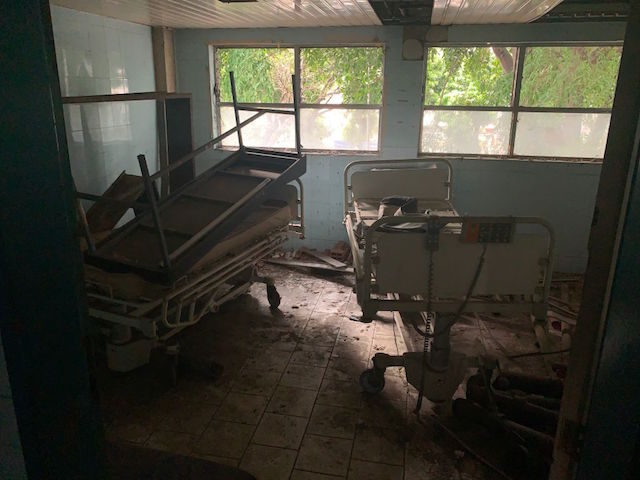The National Assembly of Venezuela – the last remaining democratically elected branch of government – approved a plan on Tuesday to help with coronavirus awareness and distribute a manual on how to contain the outbreak if it reaches the Latin American country.
Thanks to the socialist regime of dictator Nicolás Maduro, Venezuela has deep ties to the Chinese Communist Party, which has invested millions in keeping him in power. China is responsible for building a social surveillance system known as the “Fatherland card” for Maduro to help track dissidents and deny them food and basic goods. China has also attempted to get Venezuela to sign onto its “Belt and Road Initiative,” a sprawling international bid for Beijing to build and control most of the world’s transportation infrastructure, but Caracas’ ongoing economic crisis has made it impossible for Maduro to sign onto any major project.
The ties between the Chinese Communist Party and Maduro mean that travel between the two countries occurs regularly, potentially exposing Venezuela to the ongoing outbreak of a newly documented coronavirus in China. The virus, originating in the central city of Wuhan, has infected over 20,000 people and killed nearly 500 since the Communist Party announced the discovery of the virus on January 20.
Given the potential of a traveler from China bringing the virus into Venezuela – and the state of abandon and collapse that the Venezuelan healthcare system currently finds itself in – the National Assembly approved a measure that would create a protocol for how to handle a potential coronavirus case independent of the Maduro regime.
“This manual will be distributed in health centers, customs checkpoints, the Maiquetía International Airport, so that public officials will know what they are facing and what protection they should use,” José Manuel Olivares, a National Assembly member in exile who spearheaded the effort, said after it passed.
“70 percent of hospitals in the country don’t have water and the primary coronavirus prevention measure is washing one’s hands,” the lawmaker added. “89 percent of hospitals report electricity interruptions and only 49 percent of these institutions have emergency rooms open. 2,602 Venezuelans died in the country because there were no medical supplies to tend to trauma.”
“The precarious health situation in the country make us require these alerts because there is the possibility of coronavirus reaching Venezuela,” he concluded.
The novel coronavirus is highly contagious through moisture particles ejected while coughing, breathing, or sneezing. Experts believe that it may be contagious even before a carrier has visible symptoms, which tend to include fever, coughing, and body aches. Washing hands, wearing face masks, and staying away from crowded areas are pivotal measures to control the outbreak.
Another lawmaker, José Trujillo, noted on Tuesday that, even if the coronavirus outbreak had reached the country, it would be impossible for Venezuela to know because hospitals do not have testing kits. The World Health Organization (WHO) is organizing the global response; as a United Nations body, it incorrectly identified Nicolás Maduro as the nation’s head of state, excluding legitimate President Juan Guaidó. It remains unclear how the WHO would be able to distribute humanitarian aid or testing supplies in Venezuela given that it does not recognize Guaidó and Maduro’s regime refuses to acknowledge that the country has needed humanitarian aid for years.
“In Venezuela, we don’t even have a way to test [someone] to detect coronavirus,” Trujillo noted. “Prevention is key and in this country it is almost impossible to do it. International organizations should send aid to deal with this virus and avoid a tragedy.”
He added, “Venezuela will not escape the threat because we have alliances with Asian nations and the virus lives for 14 days before being detected [in someone’s body], so it can reach the country. The virus is a genetic alteration, but the truth isn’t being told to the world.”
Maduro’s regime has downplayed that threat, claiming that it has implemented the necessary safeguards to prevent the virus from ravaging the country. Maduro’s “health minister” Carlos Alvarado said on Monday that the WHO’s subgroup in the region, the Pan-American Health Organization (PAHO), would be sending testing kits to Venezuela this week. He added that Venezuela has requested that other countries identify coronavirus patients before they board planes to the country. He insisted the regime had yet to identify a coronavirus case in Venezuela.
China’s state-run news service Xinhua highlighted Maduro expressing solidarity with the Communist Party on the outbreak.
“The entire world looks on in awe at the energetic determination with which the Chinese government has met the sanitary protocols recommended by international organizations specialized in health to control the propagation of the virus,” a statement from Maduro this week read.
The Venezuelan Red Cross has expressed panic at Maduro’s coronavirus preparedness. Last week, the president of the organization, Mario Villarroel, warned that “we are not ready to fully combat this disease,” noting the dire state of Venezuela’s socialist healthcare system.
“We are calling for the prevention of the coronavirus. We are not ready to fully combat this disease. This is something that the Health Ministry has to prepare. Neither the medicines nor the treatment necessary are here,” Villarroel said.
Venezuela’s healthcare system, which Maduro boasts is a prime example of government-run health care and Venezuela’s government is constitutionally mandated to run, deals regularly with chronic shortages of medicine, electricity, and water. Amputations became increasingly common as the economy began to rot under Maduro in 2014, as antibiotics ran short, and nearly every medicine on the WHO’s list of necessary, basic medicines is no longer available. Vaccines are also in short supply, resulting in outbreaks of diseases Venezuela had eradicated before socialism, like malaria, measles, and diptheria. Patients living with chronic diseases like diabetes or HIV have little to no access to necessary treatment.

COMMENTS
Please let us know if you're having issues with commenting.